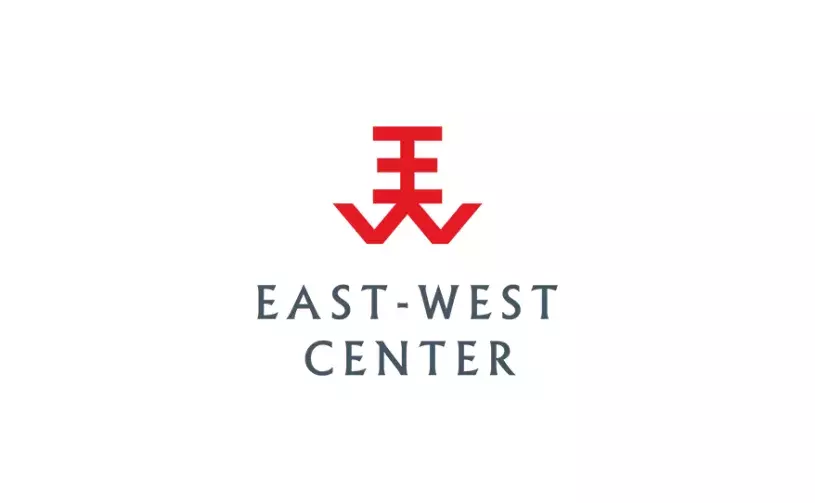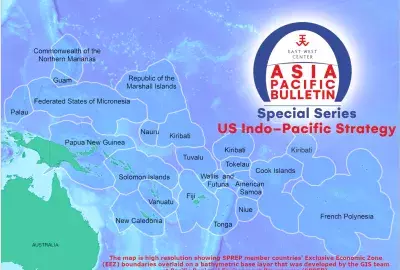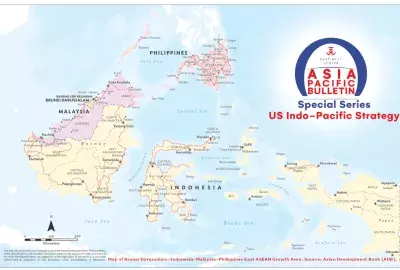Error message

Daniel Wertz, Program Manager at the National Committee on North Korea, explains that “After the world re-emerges from lockdowns and quarantines to combat the COVID-19 pandemic, Pyongyang may find that its circle of old friends and business partners has gotten smaller.”
North Korea’s tumultuous path over the past few years from nuclear standoff to summit diplomacy put a spotlight on Pyongyang’s bilateral relations across the Indo-Pacific. The February 2017 assassination of Kim Jong Un’s exiled half-brother at the Kuala Lumpur airport dramatized the malign aspects of North Korea’s overseas presence, and presaged Southeast Asia’s role as an important front in the incipient U.S.-led maximum pressure campaign against Pyongyang. As maximum pressure transitioned to engagement with North Korea, U.S.-DPRK summits in Singapore and Vietnam raised hopes that North Korea could follow the examples of these host nations, and move forward on a more hopeful path toward economic development and reconciliation with old adversaries.
Both the rhetoric of maximum pressure and expectations about the arrival of peace and prosperity north of the 38th parallel have dissipated over the past year. However, UN sanctions have remained in place, and – setting aside China and Russia – most countries in the Indo-Pacific have recently shown some degree of seriousness about enforcing them. After the world re-emerges from lockdowns and quarantines to combat the COVID-19 pandemic, Pyongyang may find that its circle of old friends and business partners has gotten smaller, and that its economic dependence on China has only deepened.
Cambodia’s actions to enforce UN sanctions have been particularly notable, given the country’s close historical relationship with North Korea and its general alignment with Beijing on foreign policy matters. In January 2020, Cambodia reported to the UN’s 1718 Committee that it had deregistered a dozen North Korean business entities in the country, expelled 115 North Korean workers, and shut down the North Korean restaurants in its territory as well as a prominent North Korean-built museum in Siem Reap. In early March, Phnom Penh also seized an oil tanker suspected of illicitly smuggling fuel to North Korea, echoing Indonesia’s seizure (and eventual forfeiture to U.S. custody) of the coal smuggling ship Wise Honest two years earlier.
Along with Cambodia, other countries in the Indo-Pacific appear to have taken UN Security Council Resolution 2397’s December 2019 deadline for the expulsion of North Korean overseas workers to heart. China and Russia – the two countries that have hosted the vast majority of such workers – have reportedly allowed significant numbers of North Korean workers to remain in or re-enter their territory on alternative types of visas, despite paying lip service to UN sanctions. However, the ASEAN countries all report that no DPRK nationals remain working in their territory. Mongolia, which has worked to position itself as a mediator on Korean Peninsula security issues, began to expel the estimated 1,200 North Korean workers in its territory beginning in 2017. Thailand and Nepal have also deported small numbers of North Korean nationals working in their territory illegally. Further afield in the Persian Gulf, where an estimated 8,000 or more North Korean laborers were based prior to 2017, the countries which previously hosted these workers have all stated that they have ended the practice. (Country-by-country summaries of the status of North Korean overseas workers are available at NorthKoreaInTheWorld.org, a joint project of the East-West Center and the National Committee on North Korea.)
Reported North Korean trade with Indo-Pacific countries other than China has also fallen considerably since wide-ranging UN sanctions were imposed in 2017. (Reported North Korean exports to China have dropped precipitously, but Chinese exports of non-sanctioned goods to North Korea have remained steady.) India and Thailand, once North Korea’s largest foreign trade partners after China and Russia, saw 2019 bilateral trade volumes with the DPRK drop to around $12 million and near-zero respectively. The Philippines and Singapore – also among North Korea’s top non-Chinese partners for reported bilateral trade in past years, exporting goods such as tobacco and electronics to the DPRK – both unilaterally banned trade with North Korea in 2017.
Singapore, which has historically been something of a hub for North Korean commercial and sanctions evasion activities due to its business-friendly climate, has also taken recent actions to prosecute sanctions violators. Last November, a Singaporean businessman was sentenced to 34 months in jail for exporting luxury goods to North Korean department stores and for money laundering. In August last year, Singapore charged a different company with illegally shipping alcohol to North Korea via the Chinese port of Dalian; Malaysia subsequently arrested a North Korean national linked to the scheme, with a court approving his extradition to the U.S. on money laundering charges. A third series of Singaporean prosecutions for violations of sanctions against North Korea is apparently pending.
The tightening sanctions enforcement noose by Southeast Asian countries and beyond is reducing North Korea’s space for external engagement. However, North Korea’s need to cultivate such illicit multinational networks and to maintain a variety of friendly diplomatic ties abroad may also be diminishing, at least for the near term. As the latest UN Panel of Experts reports demonstrates, North Korean smuggling to and from Chinese ports is becoming increasingly open and flagrant; with such an enabling environment in its immediate vicinity, there is less need for North Korea to engage in elaborate deception schemes involving third countries far from its borders. North Korea is also apparently no longer reliant on overseas venues to host its army of cyber warriors: according to the Panel of Experts, most of the country’s malicious cyber activities are now conducted from within its borders, even as North Korea continues to send IT specialists abroad for more mundane freelance work to earn foreign exchange.
North Korea has long cultivated relations in the developing world to avoid becoming overly dependent on its great power patrons, including China. Many of these relationships were forged in the era of post-colonial struggles and the Cold War, and they have continued in various shapes and forms in the decades since. But as North Korea continues to turn inward and the reality of an expansive and indefinite sanctions regime begins to settle in, Pyongyang might find that it has finally worn out the welcome of some of its old friends and partners.
Daniel Wertz, Program Manager at the National Committee on North Korea, explains that “After the world re-emerges from lockdowns and quarantines to combat the COVID-19 pandemic, Pyongyang may find that its circle of old friends and business partners has gotten smaller.”
North Korea’s tumultuous path over the past few years from nuclear standoff to summit diplomacy put a spotlight on Pyongyang’s bilateral relations across the Indo-Pacific. The February 2017 assassination of Kim Jong Un’s exiled half-brother at the Kuala Lumpur airport dramatized the malign aspects of North Korea’s overseas presence, and presaged Southeast Asia’s role as an important front in the incipient U.S.-led maximum pressure campaign against Pyongyang. As maximum pressure transitioned to engagement with North Korea, U.S.-DPRK summits in Singapore and Vietnam raised hopes that North Korea could follow the examples of these host nations, and move forward on a more hopeful path toward economic development and reconciliation with old adversaries.
Both the rhetoric of maximum pressure and expectations about the arrival of peace and prosperity north of the 38th parallel have dissipated over the past year. However, UN sanctions have remained in place, and – setting aside China and Russia – most countries in the Indo-Pacific have recently shown some degree of seriousness about enforcing them. After the world re-emerges from lockdowns and quarantines to combat the COVID-19 pandemic, Pyongyang may find that its circle of old friends and business partners has gotten smaller, and that its economic dependence on China has only deepened.
Cambodia’s actions to enforce UN sanctions have been particularly notable, given the country’s close historical relationship with North Korea and its general alignment with Beijing on foreign policy matters. In January 2020, Cambodia reported to the UN’s 1718 Committee that it had deregistered a dozen North Korean business entities in the country, expelled 115 North Korean workers, and shut down the North Korean restaurants in its territory as well as a prominent North Korean-built museum in Siem Reap. In early March, Phnom Penh also seized an oil tanker suspected of illicitly smuggling fuel to North Korea, echoing Indonesia’s seizure (and eventual forfeiture to U.S. custody) of the coal smuggling ship Wise Honest two years earlier.
Along with Cambodia, other countries in the Indo-Pacific appear to have taken UN Security Council Resolution 2397’s December 2019 deadline for the expulsion of North Korean overseas workers to heart. China and Russia – the two countries that have hosted the vast majority of such workers – have reportedly allowed significant numbers of North Korean workers to remain in or re-enter their territory on alternative types of visas, despite paying lip service to UN sanctions. However, the ASEAN countries all report that no DPRK nationals remain working in their territory. Mongolia, which has worked to position itself as a mediator on Korean Peninsula security issues, began to expel the estimated 1,200 North Korean workers in its territory beginning in 2017. Thailand and Nepal have also deported small numbers of North Korean nationals working in their territory illegally. Further afield in the Persian Gulf, where an estimated 8,000 or more North Korean laborers were based prior to 2017, the countries which previously hosted these workers have all stated that they have ended the practice. (Country-by-country summaries of the status of North Korean overseas workers are available at NorthKoreaInTheWorld.org, a joint project of the East-West Center and the National Committee on North Korea.)
Reported North Korean trade with Indo-Pacific countries other than China has also fallen considerably since wide-ranging UN sanctions were imposed in 2017. (Reported North Korean exports to China have dropped precipitously, but Chinese exports of non-sanctioned goods to North Korea have remained steady.) India and Thailand, once North Korea’s largest foreign trade partners after China and Russia, saw 2019 bilateral trade volumes with the DPRK drop to around $12 million and near-zero respectively. The Philippines and Singapore – also among North Korea’s top non-Chinese partners for reported bilateral trade in past years, exporting goods such as tobacco and electronics to the DPRK – both unilaterally banned trade with North Korea in 2017.
Singapore, which has historically been something of a hub for North Korean commercial and sanctions evasion activities due to its business-friendly climate, has also taken recent actions to prosecute sanctions violators. Last November, a Singaporean businessman was sentenced to 34 months in jail for exporting luxury goods to North Korean department stores and for money laundering. In August last year, Singapore charged a different company with illegally shipping alcohol to North Korea via the Chinese port of Dalian; Malaysia subsequently arrested a North Korean national linked to the scheme, with a court approving his extradition to the U.S. on money laundering charges. A third series of Singaporean prosecutions for violations of sanctions against North Korea is apparently pending.
The tightening sanctions enforcement noose by Southeast Asian countries and beyond is reducing North Korea’s space for external engagement. However, North Korea’s need to cultivate such illicit multinational networks and to maintain a variety of friendly diplomatic ties abroad may also be diminishing, at least for the near term. As the latest UN Panel of Experts reports demonstrates, North Korean smuggling to and from Chinese ports is becoming increasingly open and flagrant; with such an enabling environment in its immediate vicinity, there is less need for North Korea to engage in elaborate deception schemes involving third countries far from its borders. North Korea is also apparently no longer reliant on overseas venues to host its army of cyber warriors: according to the Panel of Experts, most of the country’s malicious cyber activities are now conducted from within its borders, even as North Korea continues to send IT specialists abroad for more mundane freelance work to earn foreign exchange.
North Korea has long cultivated relations in the developing world to avoid becoming overly dependent on its great power patrons, including China. Many of these relationships were forged in the era of post-colonial struggles and the Cold War, and they have continued in various shapes and forms in the decades since. But as North Korea continues to turn inward and the reality of an expansive and indefinite sanctions regime begins to settle in, Pyongyang might find that it has finally worn out the welcome of some of its old friends and partners.







